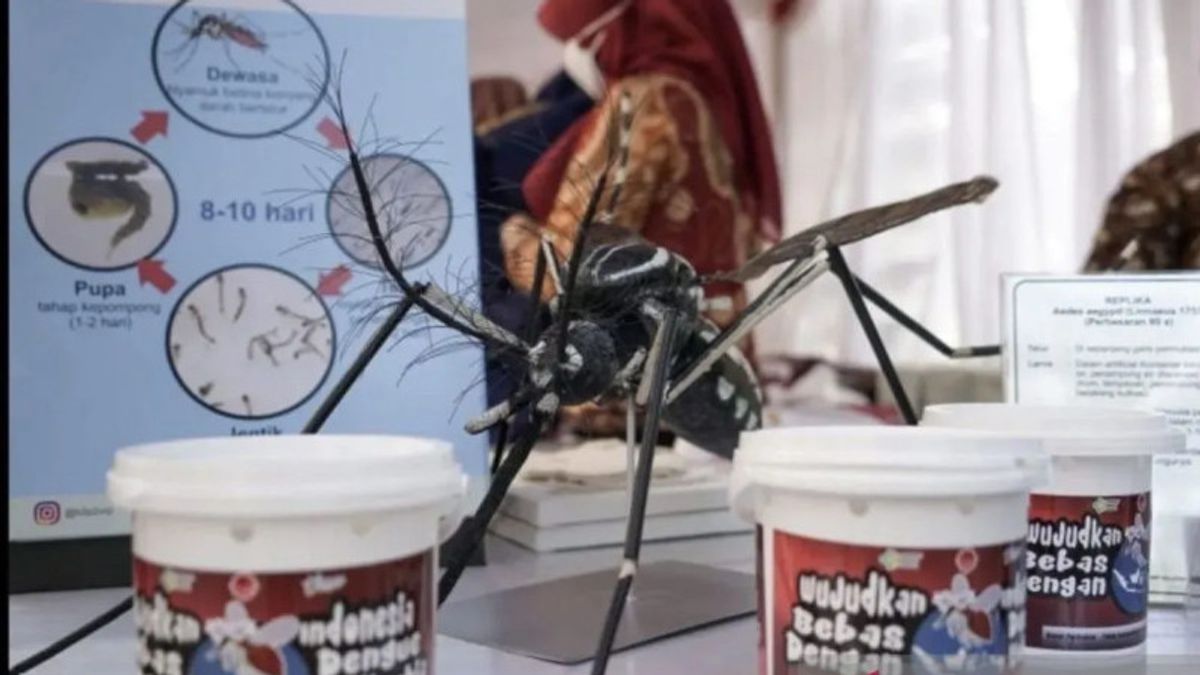JAKARTA - Director of Prevention and Control of Infectious Diseases of the Ministry of Health (Kemenkes), Imran Pambudi ensured that mosquitoes with Wolbachia would not attack humans more viciously.
"Before we carried out the spread of the Wolbachia mosquito, there had been a study of the risks carried out by 25 multidisciplinary experts. From the studies conducted, several risks that emerged could be ignored, and from the study, it was predicted that it would not be more virulent," said Imran in a year-end talk with the Ministry of Health. in Jakarta, Antara, Tuesday, December 18.
Imran explained that based on the results of a study conducted in 2021 by researchers from Gadjah Mada University (UGM), Prof. Adi Utarini, it was stated that the technology of mosquitoes with Wolbachia had been proven to reduce the incidence of dengue hemorrhagic fever by 77.1 percent and an inpatient rate of 82.6 percent.
Imran explained that the application of Wolbachia's method in Indonesia is also different from Singapore, which did it first.
"The difference with Singapore, they carry out sterilization, so all mosquitoes are male. What is done in Indonesia, is both mosquitoes, it's just that our method is different, so we don't sterilize (the moon). They still have pinak children and their children can contain Wolbachia," he said.
However, he ensured that the government would keep the Wolbachia mosquito from adapting.
"They (people with Wolbachians) always have a mechanism to survive, so if we look at it scientifically, maybe every five years there will be more adapting mosquitoes, if they mutate, it is a natural mechanism to defend ourselves, we must protect and see so that it doesn't happen," he said.
Touching on the rejection that occurred in several areas related to the Wolbachia mosquito, he stated that the Ministry of Health would approach the local government and the figures concerned.
"In principle, as long as there are still people who do not agree, we will definitely take an approach first until the conditions are conducive," he said.
He said that the spread of this Wolbachian mosquito has the potential to eliminate death due to dengue hemorrhagic fever.
"If it eliminates cases or not, because we can't 100 percent of mosquitoes have Wolbachia, but if we try to get rid of death, maybe yes. So, it's different, cases of illness and death cases, because the more we can reduce the number of cases, those who need treatment are less, meaning that the handling can be better," said Imran Pambudi.
SEE ALSO:
The English, Chinese, Japanese, Arabic, and French versions are automatically generated by the AI. So there may still be inaccuracies in translating, please always see Indonesian as our main language. (system supported by DigitalSiber.id)
Most Popular Tags
#Prabowo Subianto #donald trump #ramadan #JCI #gaza #TNI BillPopular
19 Maret 2025, 22:33

















